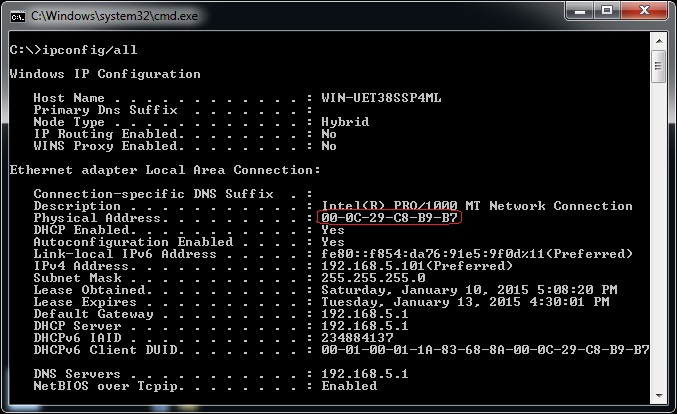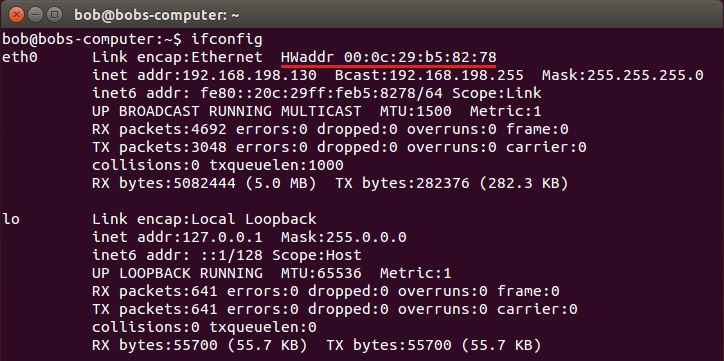MAC address
Ethernet uses MAC (Media Access Control) addresses to uniquely identify a host in an Ethernet environment. Every Ethernet network interface card (NIC) has a MAC address burned in its firmware, which is why MAC addresses are sometimes known as hardware addresses.
MAC addresses are 6 Bytes (48 bits) long. Every network card manufacturer gets a universally unique 3-byte code called the Organizationally Unique Identifier (OUI). Manufacturers agree to give all NICs a MAC address that begins with the assigned OUI. The manufacturer then assigns a unique value for the last 3 bytes, which ensures that every MAC address is globaly unique.
In the following picture we can see the structure of a MAC address:
MAC addresses are usually written in the form of 12 hexadecimal digits. For example, this is a valid MAC address: D8-D3-85-EA-1B-EE. Each hexadecimal character is 4 bits long, so the first six hexadecimal characters represent the vendor (in this case, Hewlett Packard).
How to find the MAC address of your computer
You can find out the MAC address your computer is using. The process depends on your operating system:
Windows
Go to the Command Prompt (Start – Programs – Accessories – Command Prompt on Windows XP, for newer versions of Windows, just type cmd from the Start screen). Once inside the Command Prompt, type the ipconfig/all command. The MAC address is shown in the Physical Address field:
Linux
Go to the shell and type the ifconfig command. The MAC address should be listed as HWaddr:






